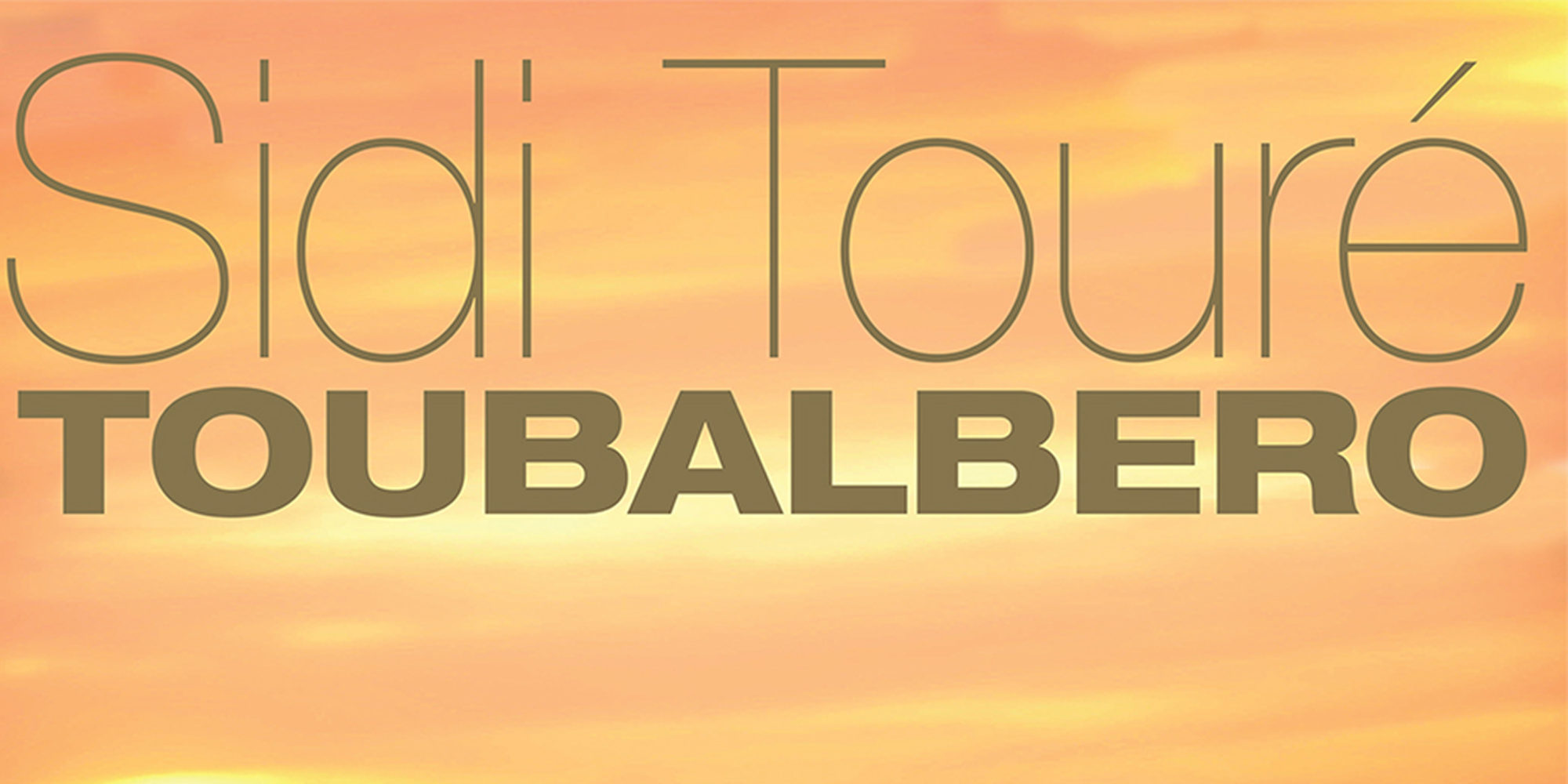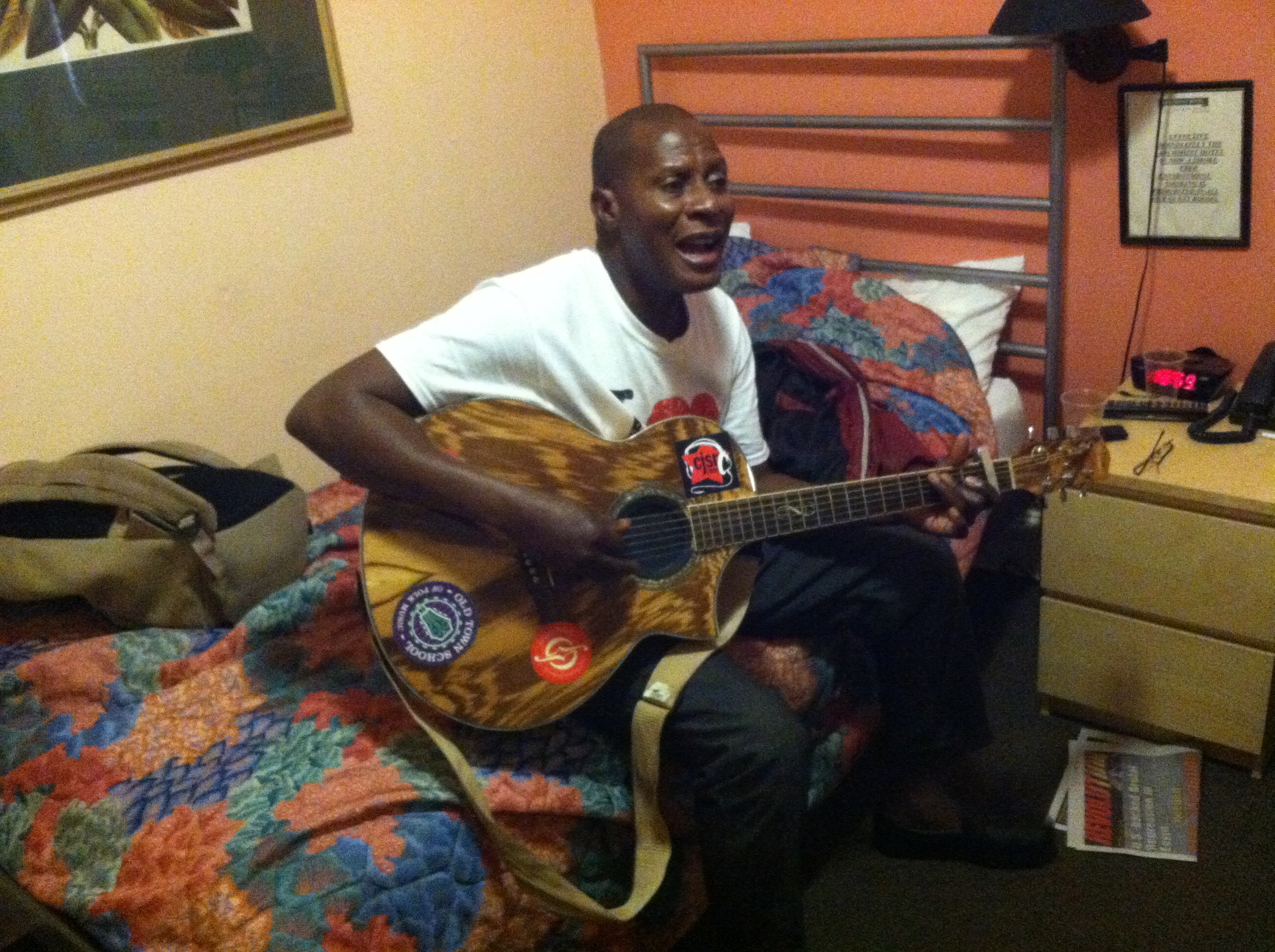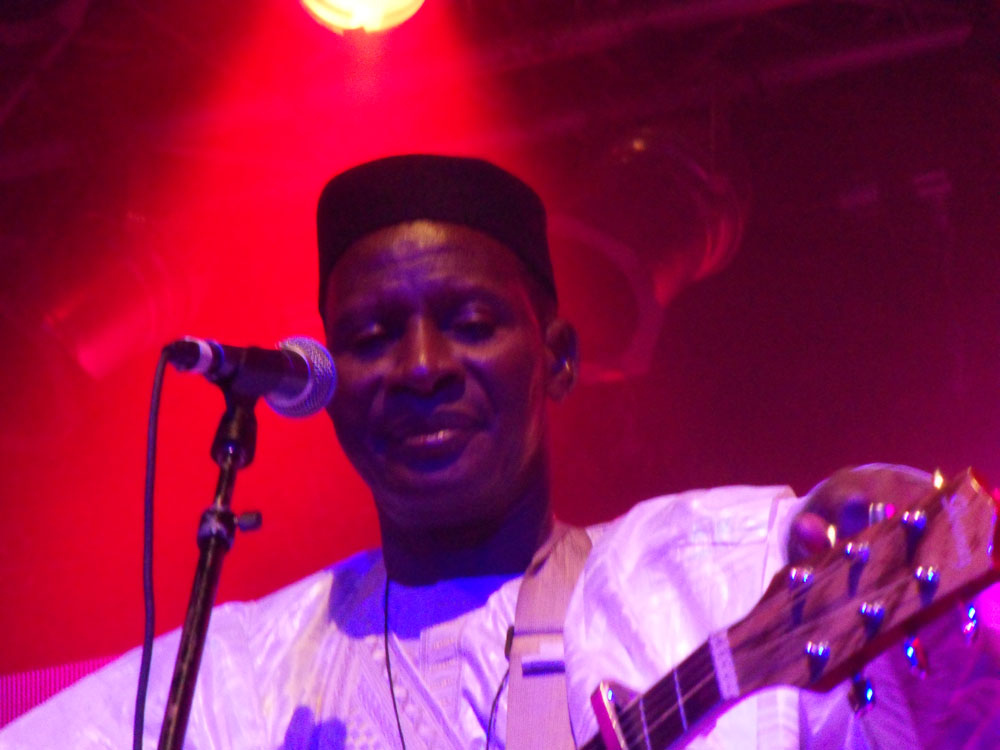Here’s another potent entry in the burgeoning catalog of kick-ass Malian desert rock. Veteran guitarist/singer-songwriter/bandleader Sidi Toure tosses off his folksy persona and rallies a full band for a rowdy, rollicking soul cry from the Sahara. This is the fourth album since Toure left his post as head of the Gao regional orchestra, Songhaï Stars, and it’s his most robust and rocking effort to date. “Tarzidet” kicks off with muscular Sahel funk, laced with a surrounding chorus of electric guitars (Toure is joined by fellow guitar ace Djadjé Traoré), and the sharp twinkle of ngoni from Ousmane “Papou” Dagnon. Toure’s vocal is plaintive but resolute. “Kaoula” keeps the energy level high with a galloping 12/8 groove and the crack of calabash percussion cutting through a din of urgent, racing guitar riffs.
The north of Mali has been through all manner of deprivation and terror since the Islamist uprising of 2012, but there isn’t a note of complaint or defeatism here—more like defiance. Whether praising the ancestors in the majestic rock anthem “Sitiali Boubou,” or celebrating the joy of marriage in “Heyyeya,” with its raging, distorted guitars and soaring griot-like vocal from Babou Diallo, the feeling here is forcefully positive. Musically, the contrast between dirty guitar sounds and clean ngoni—both taking fabulous solos—is magic, and a trademark of this session, although on the love song “Djirbi Mardjie,” the formula is reversed with distorted ngoni and clean guitar.
The track “Tchirey” is a standout. It’s a song of spirit possession, a call to the king of the Holleys, the djinn of thunder, and there’s bracing, mystic power in the song’s relentlessly cycling 12/8 riff. “Hannah” (the vigil for a newborn), builds around a unison ngoni and guitar riff in the trance-friendly Dorian pentatonic mode, with Toure’s sharp, strong voice riding smoothly over a broken beat. Throughout the session, Toure’s vocal is characteristic of Songhaï singers from Gao, with a flutey edge and plainly unvarnished passion. The overall effect is a direct appeal to the heart—and the body—for this album moves. In fact, if there’s any critique to be made, it’s that a slow song might have offered a welcome breather. No matter. This is powerful work, worthy of the title Toubalbero, which refers to a large drum used to rally people to a cause. The cause is peace in the north of Mali, and it’s hard to imagine a more exhilarating call.












